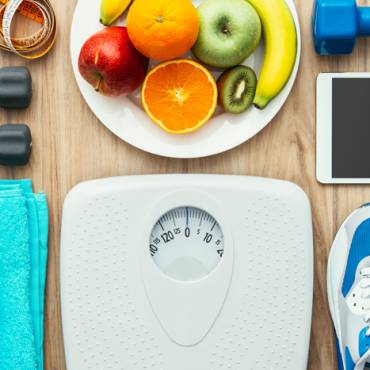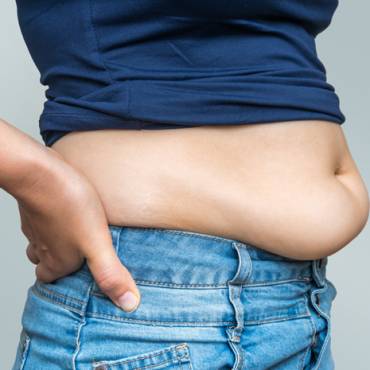Signs you’re eating too much sugar
People think only those with diabetes have to watch what they eat and have problems with their sugar levels. Anyone can suffer from this and most of us don’t see the harm being done to our nerves, blood vessels, and organs. Recognizing worrying symptoms can help you make sure you catch problems right away.
- Constant hunger: notice that even though you’ve just eaten, but you’re still hungry? High blood sugar prevents glucose from entering cells, which means the body does not receive energy and continues to ask for food. Cut back on creamy desserts, carbonated drinks and don’t put sugar in your tea or coffee.
- Increased fatigue: Ever wake up feeling tired? When your body has a high blood sugar level, it can’t store or absorb glucose properly. Energy is used inefficiently, and body cells don’t receive the fuel they need to function. You will notice this when you feel tired for no reason. If you can’t cut sugar all at once, try replacing it with honey.
- Frequent urination: If blood sugar is too high, the kidneys can’t reabsorb fluid. This is bad because your body, which is trying to equalize the glucose concentration in the blood and cells, dissolves blood with intercellular fluid. This is what brings the concentration of glucose to normal and results in the constant need to urinate. To help this, avoid eating candies, ice cream, and pastries.
- Dry Mouth: Usually accompanied by excessive thirst, this is a response to severe fluid loss. The hypothalamus, which causes thirst, sends corresponding signals to the brain. You can’t avoid drinking something, so choose drinks like water and tea without sugar. Avoid drinking juices, which contain an excessive amount of sugar.
- Weight loss: when you have a high glucose level, you can lose weight within a short period – even if your meals are high in calories. You lose weight because:
- Fluid loss leads to a low fluid level in your body
- The insulin level is insufficient for glucose metabolism
- A large amount of urine at a high level of glucose makes the body use more calories
- Infectious diseases: urinary tract infections and yeast infections can occur in both men and women, though they occur in women with high sugar levels and diabetes more often. An environment with a significant amount of sugar is favorable for yeasts and bacteria growth. In order to stay healthy, you need to eat at little sugar as possible. Slowly cut sugar from your diet – start with a week and work your way up to a month.
- Dry skin: excessive urination dehydrates your body to the extent that it can have a negative effect on your skin. This is especially true for the skin on your legs, which is usually a sign of narrowing arteries and poor blood circulation. Excessive sugar levels can damage nerves, which disrupts the normal function of the sweat glands and the skin water balance.
- Concentrating difficulties: high sugar levels prevent glucose from eating the brain cells, so the brain has difficulties obtaining energy. This affects the speed of thinking and decision making.
- Blurred vision: This is caused by the dehydrating effect of high blood sugar and affects the cells in your eyes. As a result, the eyes become deformed and lose their ability to focus properly.
- Slow healing wounds/cuts: Have you noticed that your wounds and cuts heal slowly? This happens because of vascular damage due to high sugar levels and it leads to poorer blood circulation, especially in the limbs. This causes the tissues to get an insufficient amount of nutrients. If you notice this, contact your primary care physician right away!
- Impotence: Difficulties maintaining an erection can also occur because of high blood glucose. A healthy erection needs healthy nerves, good blood flow, and balanced hormones. Excessive sugar in your blood can have a negative effect on each of these systems.
- Irritability: Studies have shown that people with high sugar are more anxious. The brain depends on an equal supply of glucose and abrupt changes in its level negatively affect its work. As a result, your mood suddenly gets worse. Sugar also affects the absorption chromium, which is a mineral needed to maintain a stable level of blood sugar. Insulin, which removes glucose from the blood, can’t work properly without it.
The National Institute of Health estimates that adults in American get 15 percent of calories in their diet from added sugars alone. This sugar consumption does not even include natural sugars, which are found in fruit and milk. Excessive sugar consumption is linked to numerous health conditions, including:
- heart disease
- type 2 diabetes
- obesity
- high blood pressure and cholesterol
- chronic inflammation
- dental plaque and cavities
Cutting back the amount of sugar in your diet can help you reduce the risk of developing these conditions. You should replace the sugary foods you eat with food that can help you get the essential vitamins and minerals. Overtime, it may even help you lose weight. One of the most important things to consider when changing the diet is to do so gradually. When going from a diet full of sugar to one containing no sugar, you should take this process very slowly.
- Read labels: this can help you realize how much added sugar is inside the food you eat on the daily.
- Avoid simple carbs: Simple carbs include white flour, white pasta, and white rice. These cause spikes in blood sugar levels and can be easily replaced with whole grain options.
- Stay away from artificial sugar: Eating artificial sugars can trick the body into thinking it is actually eating sugar. This can exacerbate a person’s sugar cravings, making it more difficult for them to stick to a no-sugar diet.
- Cut back on sugary drinks: sugar-sweetened drinks, such as soda, specialty coffee, sweetened teas, and fruit juices, are one of the most significant sources of added sugars in the diet.
- Eat more whole foods: A person on a no-sugar diet can also aim to eat 100 percent whole foods. Processed foods are more likely to contain refined ingredients or added sugars.
- Meal plan: When hunger strikes, a person may be more likely to reach for that unhealthful snack if they do not have nutritious meals and snacks to hand. Many people take a day to do both their shopping and meal preparation for the entire week. With food at the ready, they are less tempted to reach for a candy bar or soda.
- Use Alternatives: Many sweet-tasting herbs and spices can easily be added to food and drink to replace sugar. Common replacements include cinnamon, nutmeg, cardamom, and vanilla. These can be added to coffee or sprinkled on top of oatmeal or yogurt.
People should approach a no-sugar diet plan gradually. Alternating the diet plan or eating sugar on special occasions may help some people cope with the loss of sweetness in the diet. Cutting back on sugar is probably a good idea for everyone, as it helps reduce the risk of numerous conditions and can improve a person’s overall health.



